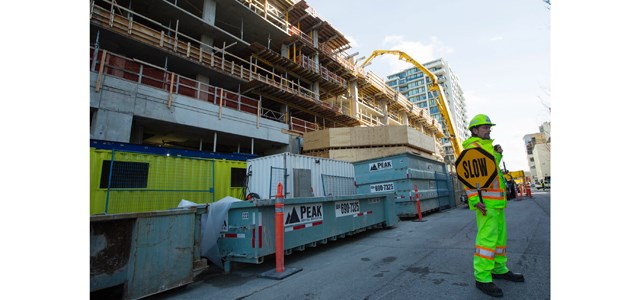Contributions from single-family home developers to the City of Richmond’s affordable housing reserve will double, if council adopts a staff proposal tabled Tuesday at a planning committee meeting (full report).
City planners are recommending developers pay $2 per square foot — instead of $1 — on new home developments that undergo rezoning.
Money pooled into the reserve helps pay for larger affordable housing projects. The move is the first of many as the city revamps its eight-year-old affordable housing strategy.
While those projects help low-income residents, developer Amit Sandu told the committee that while he supported the new fees, the buck will simply be passed on to the homebuyer and thus put middle-class/entry-level homeownership even more out of sight.
Coun. Alexa Loo echoed similar worries.
“Are we doing a cash grab here or is this a real effort on our part to create neighbourhoods that are livable? I almost think it makes sense to wave those charges on homes built on non-arterial roads that don’t build on the full allowable footprint,” said Loo, who suggested there be a home size threshold for such contributions.
Other issues remain, such as how the city can procure secondary rental suites in homes.
Homebuilders still have the option to contribute cash, instead of being forced to build suites. And rightfully so, said Sandhu, as smaller homes cannot fit suites without ruining the home’s marketability.
Sandhu noted a new 1,700 square-foot detached home in Steveston sells for $1.2 million while a new 1,400 square-foot townhouse is $700,000.
Take away 300 square-feet for a suite and the detached homebuyer is left with the same living space. Sandhu said rental income still wouldn’t make up for the cost difference.
Furthermore, the city’s report stated developers were opposed to enforcing suites entirely. Developers noted buyers of homes listed at over $2 million preferred home theatres instead of suites.
So, the city is still left to tackle how to deal with its market rental dearth and "affordable" entry-level homeownership, which has taken a back burner to low-end market and subsidized rental projects, according to planners.
Meanwhile, on a positive note for the city, Joe Erceg, Richmond’s general manager of planning and development, announced that Richmond will be the first city in B.C. to begin extinguishing provincial land use contracts, after the government granted municipalities that ability last month.
These contracts allowed landowners to skirt municipal bylaws on height and size restrictions.
Erceg said it is now council’s prerogative to enact bylaws to restrict lot and home sizes. In the same proposal, staff noted contribution increases to townhome and apartment developments are also being considered.
The city could stand to collect an estimated $76 million for affordable housing projects instead of $39 million over the next 25 years, with the fees.
The changes are subject to consultations with “stakeholders.” according to the report.
Any changes made will be grandfathered so as not to affect current developments.



